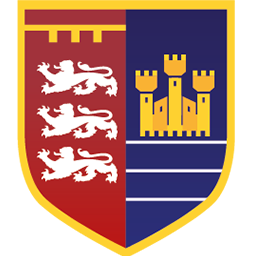Modern Foreign Languages (MFL)
'Learning another language is not only learning different words for the same things, but learning another way to think about things'
Flora Lewis
Curriculum Intent
We believe all students deserve a languages curriculum that is ambitious and rich in knowledge. MFL serves a cultural and linguistic purpose, and we aim to foster students’ curiosity and deepen their understanding of the world with teaching that enables them to express their ideas and thoughts in another language and to understand and respond to its speakers, both in speech and in writing.
In line with the Trusts vision, we want all young people to ‘make outstanding progress’ through a languages curriculum that aims to break from insularity by providing an opening to other cultures and promoting global citizenship.
Careful consideration has been, and continues to be, put into developing the Languages curriculum; the curriculum spirals and is planned and sequenced so that new component knowledge and skills build on what has been previously taught and enables students to widen their understanding, knowledge and use of a variety of language competencies.
Progress in languages is along three pillars: Phonics, Vocabulary and Grammar.
Revisiting key vocabulary and phrases, threading the language skills is an embedded routine throughout both key stages.
Our curriculum promotes skills transferable to a wide range of careers.
Students will be taught units of work that cover and go beyond the requirements of the national curriculum and this should enable students to:
- Be exposed to foreign language and culture, therefore promoting tolerance towards other cultures in line with British values.
- Explore diverse topics and more complex grammar, allowing them to express themselves in a foreign language.
- Enrich the use of their mother tongue through comparison of the language and culture of another country.
- Reach their full potential and make outstanding progress, with differentiation, particularly for students with SEND.
- The curriculum is challenging for the most able as it deals with topics requiring higher order thinking, such as the environment and global issues.
- The study of a modern foreign language at GCSE should also broaden students’ horizons and encourage them to step beyond familiar cultural boundaries and develop new ways of seeing the world.
- The curriculum builds on prior learning at KS3 by revisiting many of the same topics in order to deepen knowledge and achieve mastery by increasing linguistic and grammatical sophistication.
- Careers: the aim is to develop language-learning skills both for immediate use and to prepare them for further language study and use in school, higher education or employment.
Languages has an important role in developing students’ cultural capital. Studying languages helps them to increase their cultural awareness and promotes global citizenship.
Some examples of key issues that are discussed are: personal relationships, local area, healthy lifestyles, modern technology, education and post-16 plans, environmental issues and other topics relevant to communication for real life purposes such as buying food, requesting directions or reporting lost property.
Through discussion of key languages topics, experiences gained from co- curricular, trips and talks to understanding the utility and broad application of languages qualifications, knowledge and skills used in languages, the department builds on students’ languages capital.
Curriculum Content
Each department has carefully developed curriculum plans in line with our curriculum intent. The curriculum overview for each year group in this subject can be found below.


